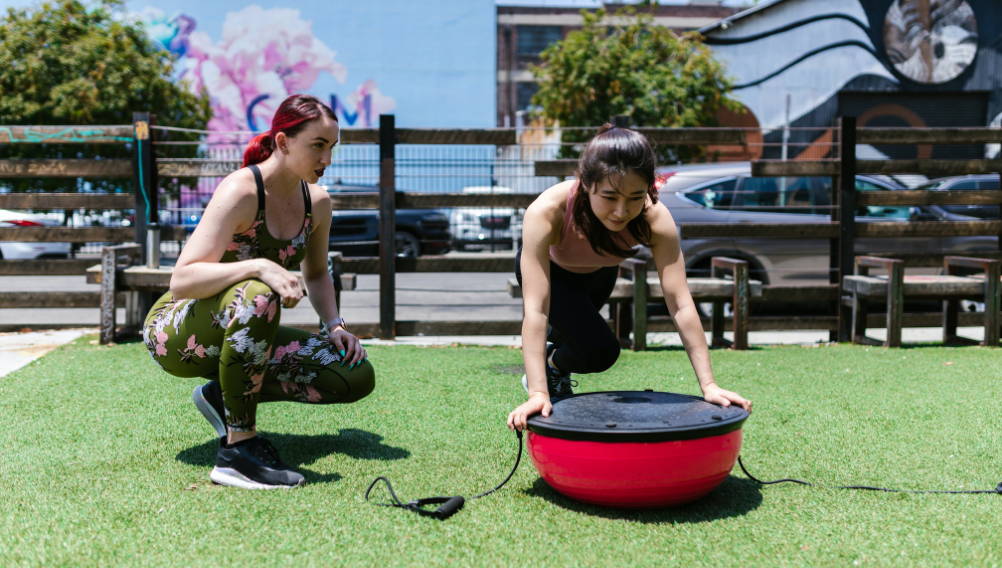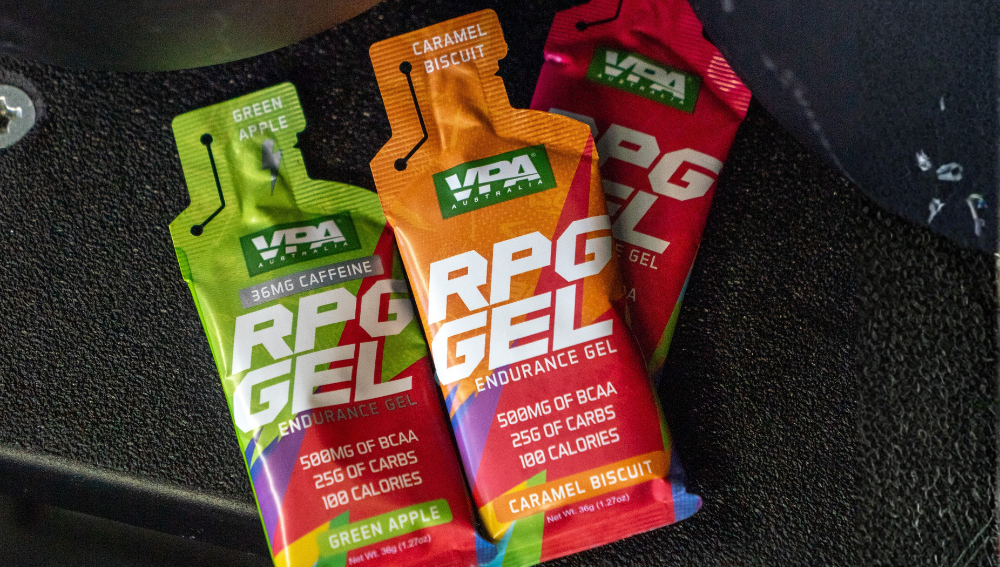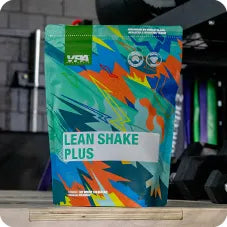Your Cart is Empty
The Best Way to Take Creatine for Maximum Results (2025 Guide)
September 11, 2025 8 min read

TL;DR
Creatine is one of the safest, most researched, and most effective supplements for muscle gain, strength, and recovery. The best way to take creatine is with a creatine monohydrate supplement, at a daily dose of 3-5 grams. A loading phase (20 g/day for 5-7 days) is optional but speeds up results. For optimal absorption, take creatine immediately after your workout, paired with protein and carbohydrates, and continue taking it on rest days. Stay hydrated, avoid excessive caffeine and alcohol, and prioritise consistency over timing. Suitable for men and women, creatine offers proven performance and long-term health benefits, including potential benefits for memory and cognitive health.
Estimated reading time: 9-10 minutes
What Is Creatine and How Does It Work?
Creatine is a naturally occurring compound in the body, made from three amino acids: arginine, glycine, and methionine. It is produced in the liver, kidneys, and pancreas, and stored mainly in skeletal muscle.
In the body, creatine combines with phosphate to form phosphocreatine, which helps regenerate ATP (adenosine triphosphate): 1 the primary energy fuel used during physical activity and high-intensity exercise.
When you sprint, lift weights, do HIIT, or play sports like football and basketball, ATP is rapidly broken down to provide energy. However, ATP stores are limited and deplete within seconds. Creatine supplementation increases the phosphocreatine pool in muscles, enabling ATP to replenish more quickly. This means more reps, heavier lifts, faster recovery, and improved performance in short, intense bouts of activity.
Key Creatine Benefits:
-
Increases strength and power output: Creatine enhances maximal strength and performance in resistance training by boosting the body's energy reserves.
-
Improves muscle mass: It increases training volume and enhances protein synthesis, resulting in greater lean muscle gains.
-
Supports recovery: Reduces muscle damage markers, aiding faster recovery between workouts.
-
Cognitive performance: Recent research suggests creatine may benefit memory, focus, and mental processing speed, and improve cognition in ageing adults.
-
Potential health benefits: Creatine is being studied for neurological conditions, metabolic health, and healthy ageing.
Creatine monohydrate is the most studied, available, budget-friendly, and proven form of creatine. If we compare creatine HCl vs monohydrate, the former is marketed as more soluble or easier to digest, but evidence consistently shows monohydrate is equally effective, bioavailable, and easy on the pockets, and remains the gold standard for supplementation.
The Best Ways to Take Creatine
Creatine Loading vs Slow Saturation
How to take creatine - Loading or slow saturation? You can either load creatine quickly or allow levels to build gradually.
-
Loading phase: 20 g/day (split into 4 x 5 g doses) for 5-7 days, followed by 3-5 g/day. This rapidly saturates muscle creatine stores, giving performance benefits within a week. 2
-
Slow saturation: Take 3-5 g/day without a loading phase. It takes approximately 3-4 weeks to thoroughly saturate the muscles, thereby avoiding potential digestive discomfort or bloating associated with high doses.
If you are looking for answers to how to use creatine, both approaches lead to the same long-term results. Loading is ideal for athletes preparing for competition, while slow saturation suits casual gym-goers and beginners who prefer a gentler start.
Timing: Pre vs Post Workout
How to take creatine - Creatine before or after workout? The optimal time to take creatine for muscle gain may be immediately after training, although consistency is more crucial.
-
Pre-workout: Some believe that creatine boosts ATP and, subsequently, energy when taken before training. Creatine increases intracellular hydration if consumed before a workout, thus maintaining optimal muscle function. But don’t be mistaken. Creatine doesn’t work like caffeine. It will not hype up your energy like caffeine does. Instead, it builds up in the muscle over time, rather than acting instantly.
-
Post-workout: Evidence suggests post-workout intake, especially alongside protein and carbohydrates 3, may improve muscle growth and strength. Post-workout creatine intake replenishes ATP stores more efficiently. Post-exercise, muscles increase the rate of glycogen and nutrient uptake, making post-workout an optimal time for creatine absorption. Any supplement taken immediately after a workout is rapidly absorbed into the muscle, enhancing muscle repair and growth. This is because resistance training increases blood flow to skeletal muscle. Additionally, the loss of glycogen and other nutrients leads to increased creatine absorption by the muscles.
Pre vs. Post-Workout Verdict:Consistency is key. However, evidence slightly hints at creatine after your workout as the best time to take creatine for muscle gain.
What to Take Creatine With
How to use creatine?
Creatine absorption is enhanced by insulin and hydration.
-
Mix with water, fruit juice, or a protein + carbohydrate shake for maximum uptake.
-
Combining creatine with carbs increases insulin release, which can improve creatine storage in muscles.
-
Creatine and pre-workout: Many pre-workout powders include creatine, but read the labels carefully. Often, they contain less than the recommended daily dose of 3-5 g. So, a separate creatine supplement may be needed.
-
Avoid high caffeine intake: While moderate caffeine is fine, very high doses may bring down creatine benefits in some people.
Daily Maintenance Dose
Summary: Once muscle stores are saturated, a daily intake of 3-5 g maintains levels.
-
Standard dose: 5 g/day for men, 3-4 g/day for women.
-
Bodyweight-based: 0.03 g/kg/day (maintenance load) – a personalised approach often used in research.
-
Consistency is key: Take creatine daily, including rest days, to maintain muscle creatine stores.
Pro Tips for Getting the Most Out of Creatine
-
Talk to your doctor first: Creatine is a nitrogenous organic acid that can also be found in meat and fish. It is synthesised in the liver and used to produce energy.
Creatine Monohydrate (CM) is a supplement that can increase muscle mass, improve performance during intense exercise, and aid in the rapid recovery from muscle damage. The body needs creatine to function correctly, but it isn't necessary if your diet contains enough protein.
This is why it is essential to consult your doctor, especially if you have any existing health issues. They would present to you the different effects of creatine and how it can affect your performance.
-
Stay consistent: Benefits arise from long-term, daily use, not one-time doses. Whether before or after a workout, consistency is what matters most, rather than timing.
-
Hydration matters: Creatine draws water into muscle cells. While this gives your muscles the fuller look you always desire, increase fluid intake to prevent water retention. It's good to drink some water every few hours while taking creatine. If you don't, you'll have a higher risk of developing muscle cramping or water retention.
This creatine monohydrate side effect is widespread. And, because creatine monohydrate is used by members of high-performance sports teams who engage in high-intensity exercises, the muscles can become tenser, contributing to even more cramping.
-
Pair with progressive overload training: Creatine enhances strength gains when used in conjunction with resistance training.
-
Combine with carbs and protein: Post-workout shakes with creatine improve muscle recovery and glycogen replenishment.
-
Creatine cycle: The timing of taking the supplement is crucial, as it builds up in the muscles over time and is not fully effective until it reaches a certain level. Three different methods can be used to build up levels of creatine: loading, maintenance, and cycling. There’s no need to cycle creatine on and off. Long-term use is safe in healthy individuals.
-
Stacking wisely: If you use a pre-workout, check its creatine content. You may still need a standalone creatine dose to reach optimal intake.
Potential Mistakes to Avoid
-
Skipping rest days: Creatine works through saturation. Missing rest days slows progress.
-
Low water intake: Can lead to mild bloating or stomach upset.
-
Falling for expensive alternatives: Creatine monohydrate is considered the gold standard in creatine supplementation. Creatine HCl and other forms offer no consistent performance benefits over monohydrate, and may burn a hole in your pocket.
-
Obsessing over timing: While post-workout may have a slight edge, total daily intake is far more important than the timing of individual meals.
-
Not tracking intake: If using blends or pre-workout formulas, you may be underdosing without realising it. Thus, you may require a separate creatine supplement.
- Drinking alcohol: Drinking alcohol affects creatine supplements. It hampers its efficiency. Taking creatine supplements with alcohol will cause more water to be drawn into your cells. This means that your cells will retain more water than usual, which can lead to dehydration.
- Don’t take any diuretics: Diuretics are used for people with high blood pressure, kidney disease, or diabetes to help eliminate excess water from their bodies. Creatine is an amino acid that allows our muscles to recover more quickly after workouts and enhances athletic performance. If you take diuretics and creatine together, you can experience dehydration and muscle cramping due to decreased water retention in your muscles. Drinking more water can help alleviate this problem, but it’s essential not to overdo it.
Choosing the Right Creatine Supplement
The market offers various forms, but research overwhelmingly supports the creatine monohydrate supplement as the best choice.
Why monohydrate?
-
Most studied, with decades of research proving safety and efficacy.
-
Affordable compared to newer forms.
-
Widely available and often third-party tested.
Other forms:
-
Creatine HCl vs monohydrate: HCl dissolves more easily, but no evidence shows superior muscle gains.
-
Creatine Ethyl Ester: Moderate solubility, expensive, with weak research support.
Buying tips:
-
Look for pure, unflavoured creatine monohydrate that mixes well with the liquid of your choice.
-
Check for third-party testing or certification.
-
Avoid overpriced blends with unnecessary additives.
Try VPA’s creatine monohydrate. VPA’s 100% pure, pharmaceutical-grade powder maximises strength and recovery, is vegan-friendly, with no added flavours or additives. Unlike other supplement providers, VPA takes extreme measures to ensure its supplements are of the highest quality in the market, employing third-party lab testing by the National Measurement Institute, the authority for Australia’s chemical, biological, physical, and trade testing.
Final Word: The Best Way to Take Creatine
The best way to take creatine in 2025 is straightforward: use a creatine monohydrate supplement, take 3-5 grams daily, and maintain consistency. Whether you choose a loading phase or not, what matters most is maintaining saturation. For optimal results, consume creatine after workouts in combination with carbs and protein, stay hydrated, and incorporate it with both loading and progressive training.
Creatine remains one of the most effective, safe, and affordable supplements available, whether for muscle gain, strength improvement, recovery, or even cognitive health.
FAQs
Should I take creatine before or after a workout?
Evidence suggests that post-workout intake, especially when combined with protein and carbohydrates, may improve muscle growth and strength. Post-workout creatine intake replenishes ATP stores more efficiently and is considered the best time to take creatine for muscle gain. Hence, after is slightly more effective, but consistency is paramount.
Do I need to do a loading phase?
Not necessarily. Loading just speeds up initial muscle saturation. A maintenance dosage of 3-5 g per day is equally effective, although it yields results over time.
Should I take creatine on rest days?
Yes, it is essential to take creatine on rest days to maintain consistent muscle saturation.
What should I mix creatine with for the best absorption?
Anything works well as long as it contains sugar that peaks insulin for better absorption. Water, juice, or a protein- and carbohydrate-rich shake are good options.
What not to mix creatine with?
Avoid very high-caffeine drinks and alcohol. Moderate caffeine is generally acceptable.
How can I maximise results with creatine?
Take daily, pair with carbs and protein, stay hydrated, and follow a structured training plan that consists of resistance training and progressive loading.
Is creatine safe long-term?
Yes, studies lasting up to 5 years have shown no harm in healthy individuals.
Do creatine gummies work?
Creatine gummies are often unreliable—independent lab tests show they’re frequently under-dosed, unstable, and overpriced compared to creatine monohydrate powder, making powder the more effective and trustworthy option.
Read more about it here.
Can women take creatine?
Yes. Creatine for women supports strength, lean mass, and exercise recovery, with no unique side effects. However, pregnant and breastfeeding women must first consult their GP.
References:
-
de Poli RdA, Roncada LH, de Souza Malta E, et al. Creatine supplementation improves phosphagen energy pathway during supramaximal effort, but does not improve anaerobic capacity or performance. Front Physiol. 2019;10:352. doi:10.3389/fphys.2019.00352
-
Naderi A, de Oliveira EP, Ziegenfuss TN, Willems MET. Timing, optimal dose and intake duration of dietary supplements with evidence-based use in sports nutrition. J Exerc Nutrition Biochem. 2016;20(4):1–12. doi:10.20463/jenb.2016.0031
-
Theodorou AS, Paradisis G, Smpokos E, et al. The effect of combined supplementation of carbohydrates and creatine on anaerobic performance. Biol Sport. 2017;34(2):169–175. doi:10.5114/biolsport.2017.65336
-
VPA website
Also in Featured

Creatine Capsules vs Powder — Which Is Better for Strength and Performance?
November 06, 2025 6 min read
Read More
Running Gels Explained — What They Are, How They Work, and When to Use Them
November 06, 2025 10 min read
Read More
Why Energy Gels Are a Game-Changer for HYROX Athletes and Functional Fitness Training
October 15, 2025 6 min read
Read More Recent Articles
- Creatine Capsules vs Powder — Which Is Better for Strength and Performance?
- Running Gels Explained — What They Are, How They Work, and When to Use Them
- Why Energy Gels Are a Game-Changer for HYROX Athletes and Functional Fitness Training
- Body Type Diet: How to Eat for Your Ectomorph, Mesomorph or Endomorph Build
- The Best Way to Take Creatine for Maximum Results (2025 Guide)
- Creatine Gummies Scam? What You Need to Know vs Powder
- 10 Proven Whey Protein Benefits (and Why WPI Might Be the Best Option)
- Third-Party Tested Supplements in Australia: Why It Matters More Than Ever
- 7 Best Protein Powders for Weight Loss in Australia (Updated 2025)
- Prebiotic Collagen Protein for Gut Health and Weight Loss: What You Should Know
${{amount}}













